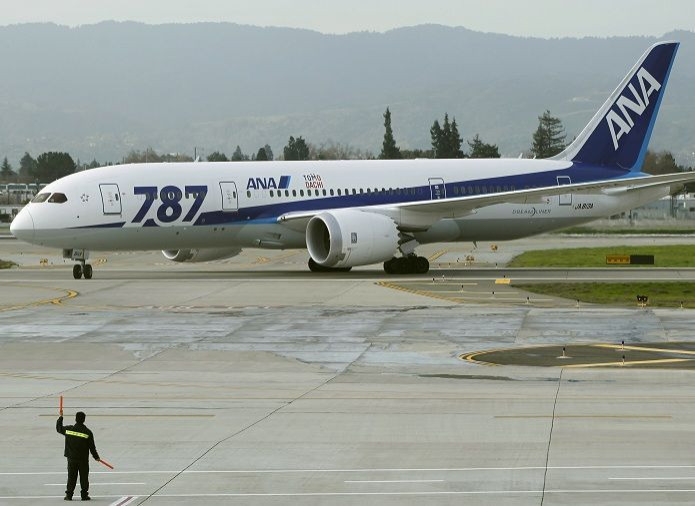New Obstacle For Boeing 787: Limits On Range

As Boeing (NYSE:BA) tries to get its 787 Dreamliner back in the air, it faces what could be a costly new challenge: a temporary ban on some of the long-distance journeys the jet was built to fly, Reuters reports.
Aviation experts and government officials say the Federal Aviation Administration may shorten the permitted flying time of the 787 on certain routes when it approves a revamped battery system. The plane was grounded worldwide two months ago after lithium-ion batteries overheated on two separate aircraft.
Losing extended operations, or ETOPS, would deal a blow to Boeing and its airline customers by limiting use of the fuel-saving jet, designed to lower costs on long-distance routes that don't require the capacity of the larger Boeing 777. Such a loss could even lead to cancellation of some routes.
"If the FAA approves (only) overland operations it would be a very damaging blow to the 787 program," Scott Hamilton, an aviation analyst with Leeham Co. in Seattle, told Reuters.
"Depending on how long that restriction remains in place, it would completely undermine the business case for the airplane, which was to be able to do these long, thin intercontinental routes," he said.
Grounding the 787 already has cost Boeing an estimated $450 million in lost income and compensation payments to airlines. Further restrictions on the jet's range could send the airlines' claims - and Boeing's costs - higher.
Until it was grounded on Jan. 16 after two battery-related incidents, the 787 was permitted to fly routes that ranged as much as three hours away from an airport. Boeing has asked the FAA to extend that range to 5-1/2 hours. That change would let airlines to fly many more routes across remote areas like the North Pole.
Now the jet faces the potential temporary loss of its ETOPS approval or a rollback to two hours, according to government officials and aviation experts.
"It is completely within expectations for FAA to limit ETOPS for the 787," one regulatory source in Japan told Reuters. He said cutting the range to two hours would force Japanese airlines to fly more circuitous routes, burning up more fuel and cutting efficiency.
A former senior U.S. government official said there was "a distinct possibility" that Boeing could win the battle over FAA flight certification for the battery only to lose permission for extended operations - at least temporarily.
"It's really premature to talk about what ETOPS certification we would give them right now," said an FAA spokesperson. "We'll be in a better position to answer questions like that after we get through all this battery testing."
The issue is heating up as Boeing nears the end of testing the new battery system, designed to prevent the meltdowns that occurred in January. Boeing executives say the FAA could approve the new battery system within weeks. The first flight test of the system took place Monday, and a second, final test flight is expected in coming days, Boeing spokesman Marc Birtel said.
© Copyright IBTimes 2025. All rights reserved.





















